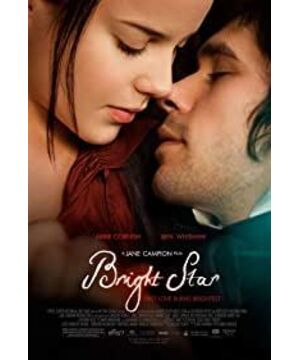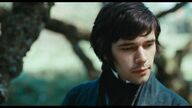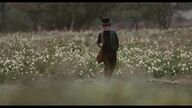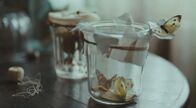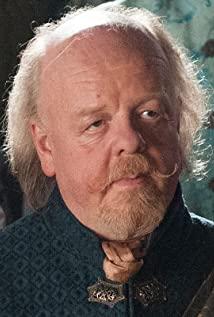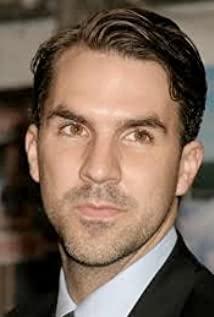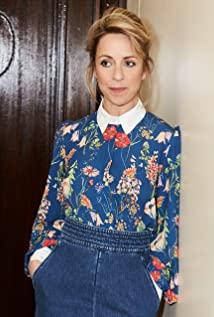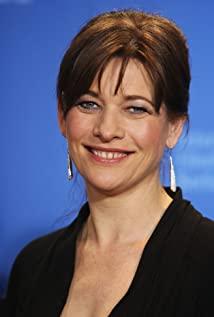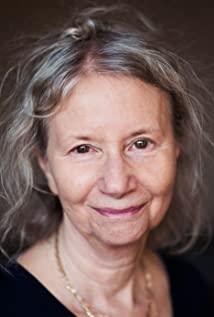"Bright Star" is adapted from the real emotional life of the British poet Keats in the last three years of his life. A tragic love story between two infatuated girls.
In 1818, in Hampstead outside London, Fanny was carefully threading the needle and sewing her own new clothes, as if weaving her own fragile love, suggesting that this is a tragedy, although it is a biographical movie, you already know the ending. Fanny loves fashion, is good at sewing beautiful clothes for herself, and dances beautifully, and has many suitors, including Keats's friend Brown. Fanny fell in love with the melancholy poet the first time she met Keats, and Keats wasn't impressed at first. Fanny's younger brother and sister bought Keats's long poem Endymion published in May 1818 from the bookstore. The bookstore owner said jokingly: I bought twenty copies, but none of them were sold. (I also deliberately read a little bit, it is true that this kind of artificial sentence segmentation that blindly pursues rhyme is very difficult to read, but it does not affect it is an excellent handed down poem.) Fanny liked it very much the first time she read it: all beautiful things are eternal Joy of / Its beauty grows every day / It never dies / It never dies, and recite these beautiful lines to Keats, Fanny brings cookies to Keats's sick brother, who dies, Fanny spends another night sewing a pillowcase for him, and Keats, who is lost and sad, is finally moved by Fanny and offers to go on a date with Fanny.
Keats wrote and read poems to Fanny, and the two gradually fell in love, holding hands, kissing, and admiring each other. Fanny became the source and driving force of Keats' creation. This period was also the peak of Keats' creation, including " Ode to a Nightingale: You, lithe forest goddess/You in the mottled rhythm of beech green shades/Open your voice/Sing of summer.
Keats had to leave Fanny in order to make a living, and Fanny also became a grudge, bedridden, until he received a letter from Keats, in which Keats confessed to Fanny: I even hope / We are butterflies/ Living only 3 days in summer / 3 days with you / is happier than living alone for 50 years.
Brown returns from out of town, but Fanny is told that Keats remains in London to make a living. Day after day, Keats finally came back from London and gave Fanny an engagement ring in the woods, and gave Fanny's handed down poem "Bright Star": The head rests on the full breast of the beautiful lover / Always feel its soothing Ups and downs/Wake up, my heart is always full of sweet turbulence/Keep listening to her delicate breathing/Always live like this, or pass out and die.
However, the good times did not last long. Keats traveled to London on a cold rainy night, and when he returned, he began to cough up blood and had to travel to Rome for medical treatment. At the last supper at Fanny's house, Fanny's mother finally gave in and said to Keats: Come back. Live with us. Marry our Fanny. Fanny asked Keats: Shall we awake and find all this is a dream? Maybe Both parties knew very well that this parting was likely to be a goodbye, and Keats could only reluctantly comfort Fanny: I firmly believe that we will see each other again in this world; please think that I will be back in spring.
On February 23, 1821, in the cold winter season of continental Europe, Keats died of illness in Rome and was buried in the English Protestant cemetery at the age of twenty-five. Epitaph: Here lies one whose name was written in water). Keats' friend Brown broke the news to Fanny, and the camera quickly focused on the sobbing Fanny on the stairs. And Keats didn't understand until he died. The person who loves him most in the world is Brown. Brown's love for Keats is true love, and Brown is the saddest person. Many plots in the film imply that Brown's love for Keats Loving love, Brown as a poet, Brown expressed his love for Keats countless times with the expression of a poet, but Keats, who is also a poet, has never been able to understand the expression of this poet.
The grieving Fanny cut off her long hair and put on black clothes. In the frozen snow, she walked slowly in the woods where she and Keats once walked, crying and reciting Keats's poem "Bright and Bright". STAR:
Bright star, would I were stedfast as thou art—
Not in lone splendour hung aloft the night
And watching, with eternal lids apart,
Like nature's patient, sleepless Eremite,
The moving waters at their priestlike task
Of pure ablution round earth's human shores,
Or gazing on the new soft-fallen mask
Of snow upon the mountains and the moors
No—yet still stedfast, still unchangeable,
Pillow'd upon my fair love's ripening breast,
To feel for ever its soft fall and swell,
Awake for ever in a sweet unrest,
Still, still to hear her tender-taken breath,
And so live ever—or else swoon to death.
Bright star! I wish to be as firm as you -
unwilling to hang high in the night sky,
staring alone, with eyes open forever
like a patient hermit in nature who never sleeps
torrent rivers busy like a priest
Washing and baptizing the mortal shores of the earth
Or stare, the white fresh snow
covers the mountains and the wilderness with a soft mask
No--still steadfast
on the head of the beautiful lover's full bosom
Feeling its soothing ups and downs
and waking up, always full of sweet turbulence
, Constantly listening to her delicate breathing
live like this forever, or pass out and die
View more about Bright Star reviews


